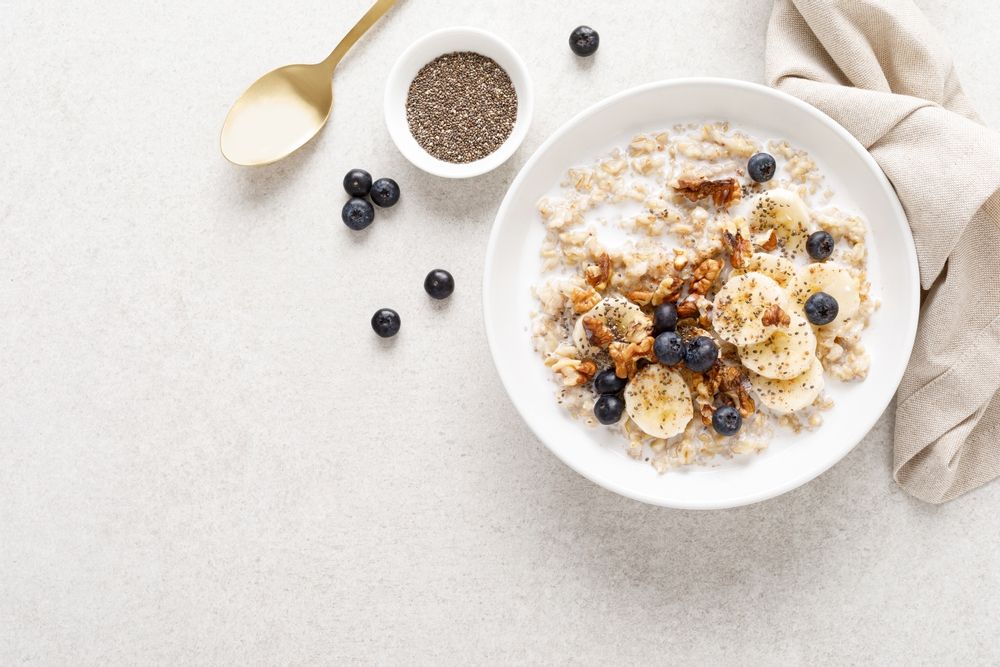As colder weather sets in, you might find yourself longing for a warm, hearty bowl of oatmeal to kickstart your day. Not only does it offer a comforting meal, but oatmeal also significantly boosts the nutritional value of your diet and can help reduce the risk of various chronic diseases. Oatmeal's numerous health advantages make it a valuable addition to anyone's diet.
You're likely aware of oats' ability to lower harmful cholesterol and manage hunger, but the specifics of the quantity and frequency needed to benefit from oatmeal might not be as clear. This article will guide you on the optimal amount of oatmeal to consume and the healthiest methods to integrate oats into your daily diet.
Determining the Ideal Portion Size for Oatmeal Consumption
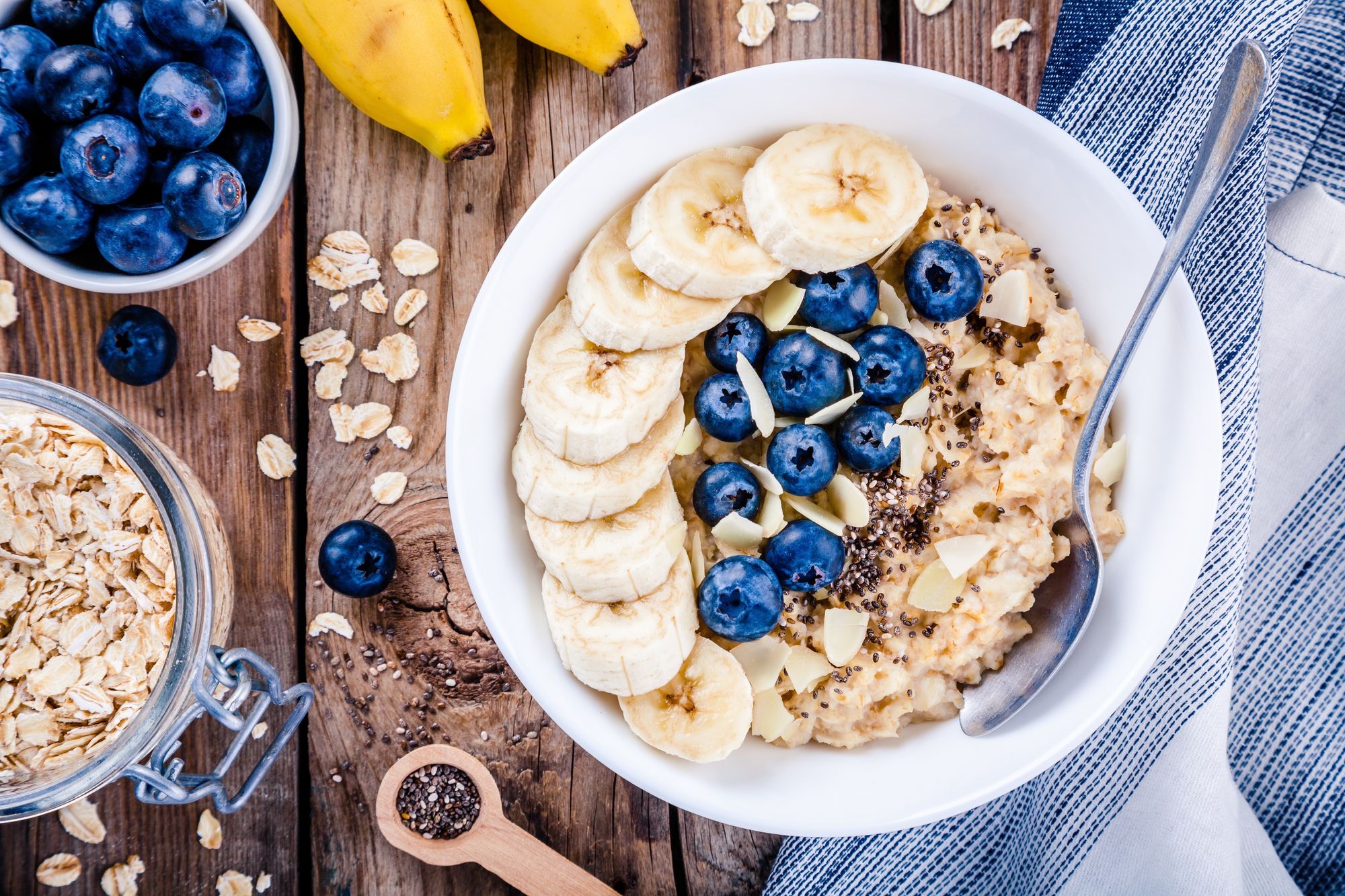
To truly benefit from oatmeal, it's recommended to consume a daily portion of one cup of cooked oats, which is equivalent to half a cup of uncooked oats.
This portion size provides four grams of dietary fiber and beneficial amounts of thiamin, phosphorus, and magnesium. Oats are naturally devoid of sodium and are low in both total and saturated fats. They also contain bioactive compounds, many of which are powerful antioxidants.
A single serving of plain oats contains approximately 160 calories, with about 3.5 grams of total fat, less than a gram of saturated fat, and 6 grams of protein.
In terms of carbohydrates, a serving contains around 28 grams, with only 1 gram being natural sugar. However, it's important to note that sweetened instant oatmeal varieties often include added sugars.
Incorporating a serving of unsweetened oats into your daily routine, especially as a replacement for sugar-laden breakfast options like cold cereal, bagels, or donuts, is an effective strategy to increase dietary fiber, add a whole grain to your morning meal, and enjoy an energy-rich breakfast that keeps you fuller for longer.
Based on USDA information, a one-cup serving of cooked oatmeal contains the following nutritional values:
- 160 Calories
- 6 grams of Protein
- 3.5 grams of Fat
- 0.7 grams of Saturated Fat
- 28 grams of Carbohydrates
- 4 grams of Fiber
- Less than 1 gram of Sugar
Advantages of Daily Oatmeal Consumption
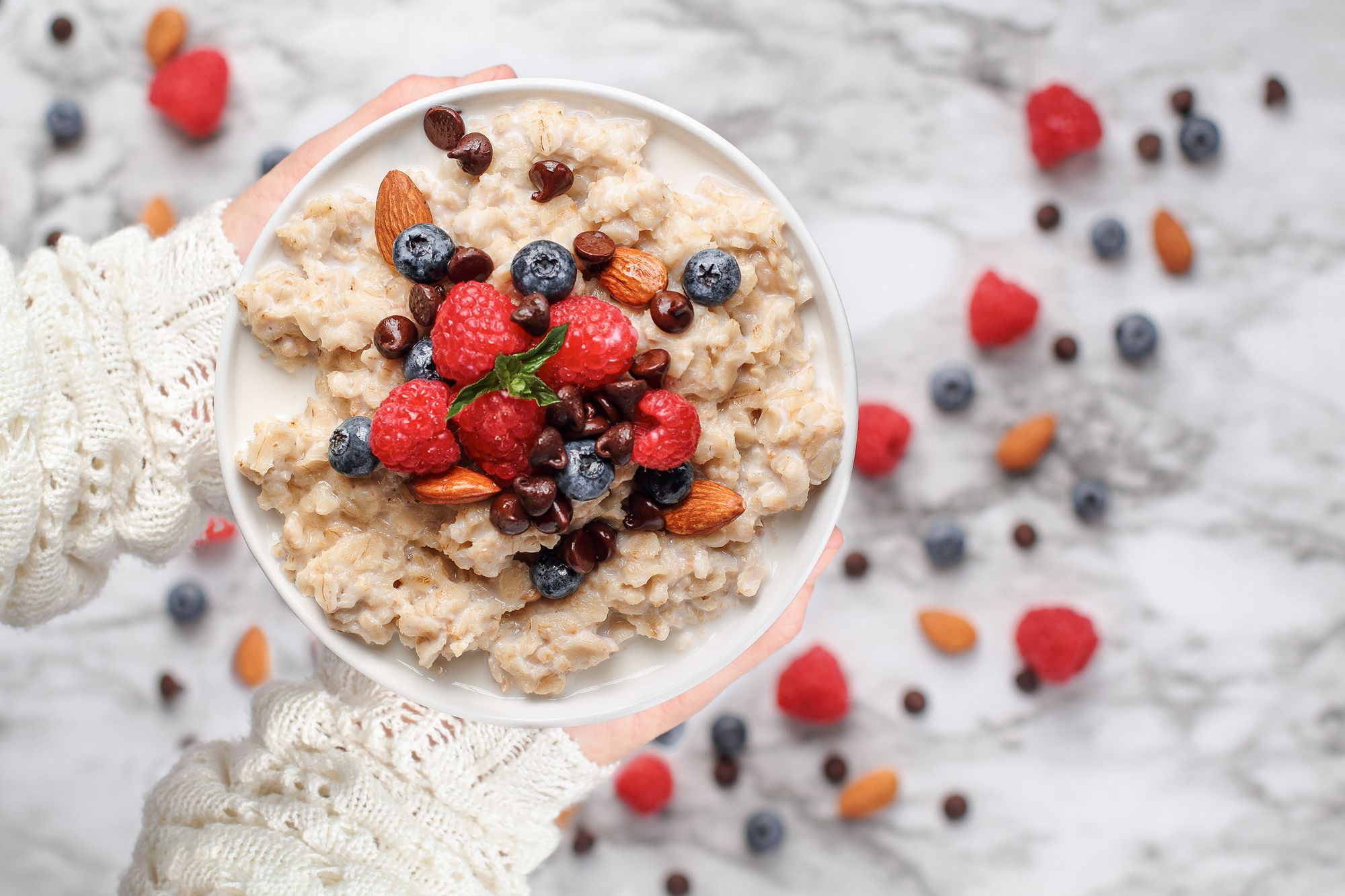
Oats are Beneficial in Reducing Cholesterol and Enhancing Cardiac Health
The FDA has long recognized the cardiovascular benefits of oatmeal, noting that consuming soluble fiber from oatmeal as part of a diet low in saturated fat and cholesterol can help lower the risk of heart disease. For this benefit, a daily intake of 3 grams of soluble fiber is recommended.
A 2019 research review in Frontiers in Nutrition highlighted that beta-glucan, a type of soluble fiber found in oats and barley, is effective in reducing total cholesterol levels, thereby lowering the risk of cardiovascular diseases.
Each serving of oatmeal, which is one cup of cooked oats or half a cup of raw oats, contains approximately two grams of soluble fiber. This amount constitutes about half of the total fiber content in a serving of oats.
Therefore, to achieve the heart-health benefits associated with 3 grams of soluble fiber, one would need to consume about 1.5 cups of cooked oats or 3/4 cup of raw oats.
Oats Can Enhance Gastrointestinal Health and Support a Healthy Gut Microbiome
Research using animal models suggests that oats can contribute to a more balanced gut microbiota. Enhancing the ratio of beneficial to harmful bacteria can bolster immunity and may aid in weight management, as per scientific findings.
A study featured in the Journal of Functional Foods revealed that incorporating oats in the diet helped prevent weight gain and body fat accumulation in animals, even when they were overfed.
Additionally, for an extra boost to gut health, consider complementing your oats with plain yogurt. This combination not only enriches the flavor but also introduces live, active probiotic cultures, which further support gut health and equilibrium.
Oats Could Play a Role in Disease Prevention
Based on a review article in the journal Foods, numerous potential health benefits are linked to consuming oats. These include enhanced immunity and gut health, along with a lowered risk of diseases such as cancer and atherosclerosis. Additional research suggests that oats may also help in reducing inflammation and the risk of type 2 diabetes.
However, it's important to note that these health benefits are currently regarded as preliminary. More extensive research is required to achieve a substantial scientific consensus on these findings.
Which Oats are the Best?
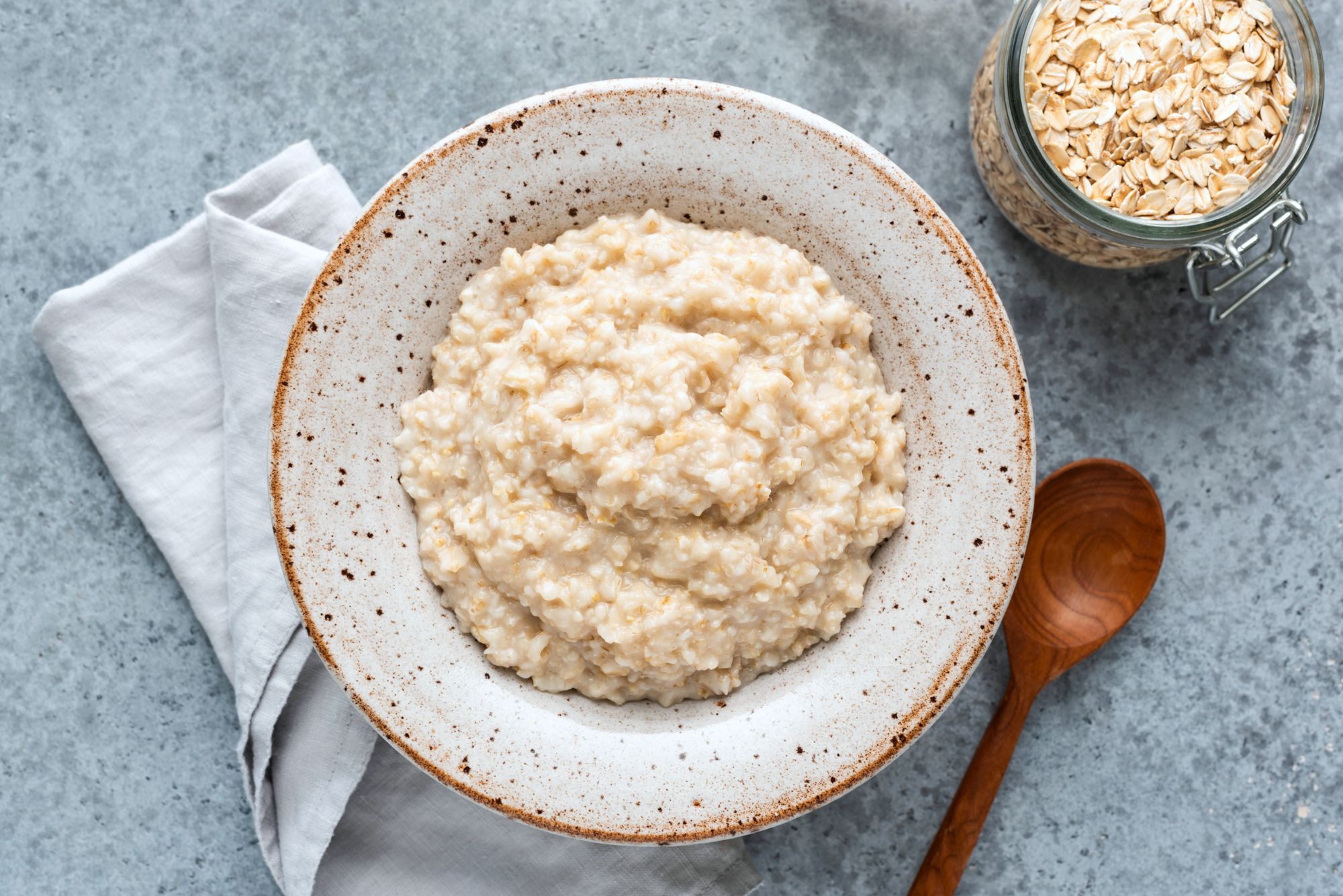
Navigating the oatmeal aisle in supermarkets can be overwhelming due to the vast array of choices available, including instant, quick-cooking, old-fashioned, and steel-cut (Irish) oats.
Steel-cut oats, or Irish oats, undergo minimal processing; only the hull is removed from the oat groat. They require a longer cooking time and offer a more textured consistency.
Rolled oats, also known as old-fashioned oats, begin as steel-cut oats. They are then steamed and rolled flat under high pressure. This process results in a flatter, flakier oat that cooks quicker and has a softer texture.
Instant oats are produced by chopping oat groats into smaller pieces, then steaming and rolling them into even thinner flakes. This makes them cook the fastest and results in the softest texture. The steaming and rolling process has a minimal impact on the nutritional content of the oat groats.
Regarding health benefits, quick-cooking rolled oats are an excellent choice, but steel-cut oats are equally beneficial if you prefer them. Given the rapid cooking time of quick-cooking oats, instant oats don't offer much additional convenience. Instant, rolled, and steel-cut oats all provide the beneficial beta-glucan fiber, contain the same phytonutrients, and are whole grains. However, it's advisable to avoid oats with added sugars.
Other Ways to Eat Oats Besides Oatmeal
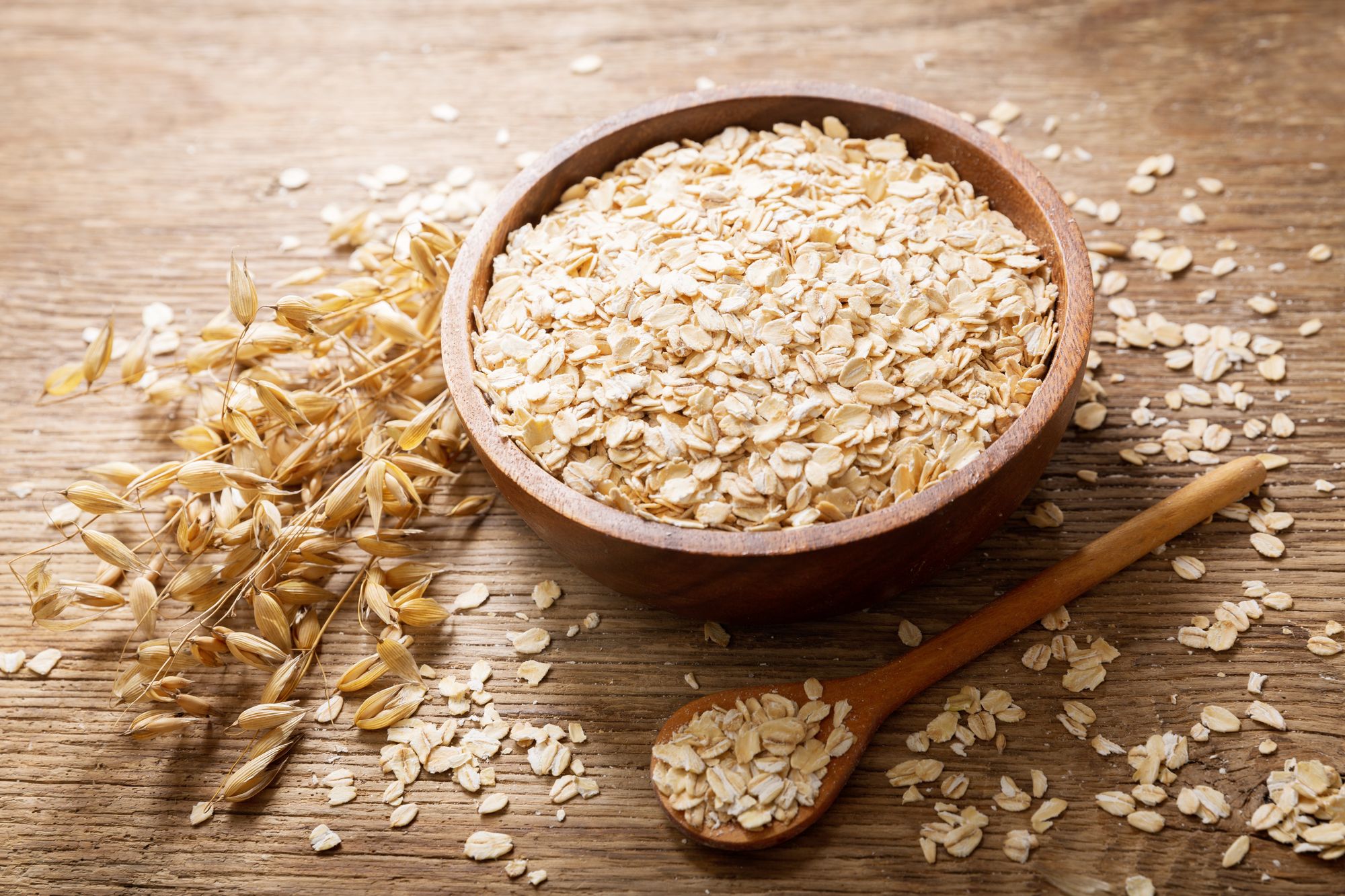
To diversify your diet and still reap the benefits of oats without eating oatmeal every day, consider incorporating oats into various dishes. Oats can be a versatile ingredient in numerous recipes, such as muffins, pancakes, or smoothies.
Here are 10 nutritious alternatives to enjoy oats beyond the traditional bowl of oatmeal:
1) Homemade Granola
2) Oat-Based Muffins
3) Oat-Infused Pancakes and Waffles
4) Oat-Powered Smoothies
5) Oat-Enriched Burgers, Meatballs, or Meatloaf
6) Oat Risotto
7) Oat-Based Pizza Crust
8) Oat Bars, Energy Balls, and Cookies
9) Oat Quick Breads
10) Oat-Topped Fruit Crisps and Cobblers

